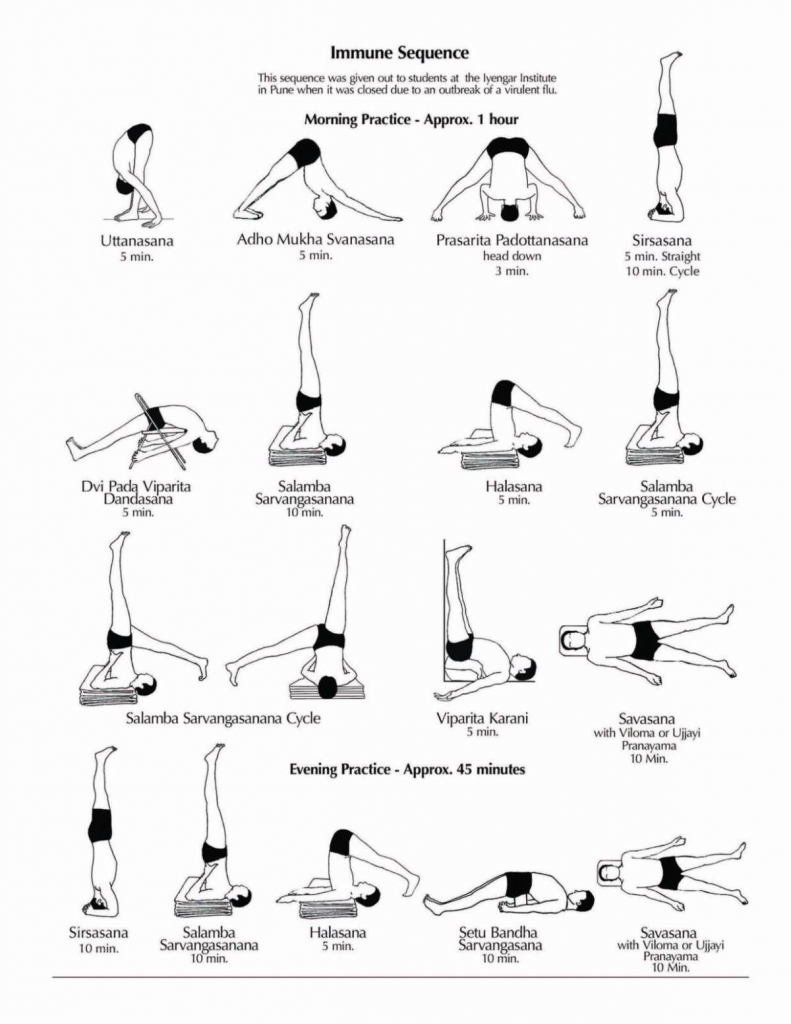We hope you are finding time for your yoga practice. Here is a sequence from Guruji for boosting your Immunity. If you don’t do inversions you could repeat head supported downward facing dog in place of head stand, and longer block or bolster supported bridge pose for shoulderstand. Please refer to the pictures on the bottom to sort out all the sanskrit names.
MORNING PRACTICE:
Uttanasana (support head) 5 min
Adho Mukha Svanasana (support head) 5 min
Prasarita Padottanasana (support head if not on floor) 3 min
Sirsasana 5 min
Sirsasana cycle (see Light on Yoga plates #202-218) 5 min
Viparita Dandasana (support head) 5 min
Sarvangasana 10 min
Halasana 5 min
Sarvangasana Cycle 5 min ( Light on Yoga plates #234-271)
Setu Bandha Sarvangasana (supported) 5 min
Viparita Karani (at wall) 5 min
Savasana (w/ Ujjayi or Viloma pranayama) 10 min
EVENING PRACTICE:
Sirsasana 10 min
Sarvangasana 10 min
Halasana 5 min or
Setu Bandha Sarvangasana (supported) 10 min
Savasana (w/ Ujjayi or Viloma pranayama) 10 min
Here’s the whole thing with pictures.



Wow, that’s a lot of shoulder stand / halasana action! I enjoyed this sequence, it also challenged me physically, and I was surprised by how much time was spent in that form, with the head bent towards the chest. Definitely had a calming effect! Mentally I was very relieved and encouraged also to have an immunity sequence to practice.
I did it this morning and felt great afterwards. Thanks so much!
Thank you Laurie, I love this sequence . I’m incorporating supported inversions, Sirsasana on the ropes , chair Sarvangasana and half Halasana with feet on the wall. This allows me to hold the poses longer. Truly appreciate the opportunity to stay connected and the nudge for daily practice.
I practised this yesterday and used support for my head in uttanasana and in adhomuka svanasana. Also while in halasana I did variations: supta konasana and parsva halasana. Nice practice.
So when practicing this myself it occurred to me that some may want to use wall support for the long holds. For the first three you could have your back on the wall or your hips. If you use the wall for headstand, you could still practice your balance for a few minutes off and on. For shoulder stand you could have your heels on the wall or turn it around into a nirlamba and have your toes on the wall. The main point of this sequence is long steady holds without over exerting yourself.